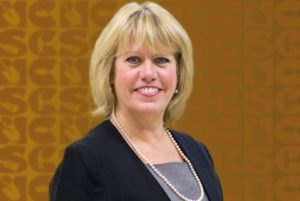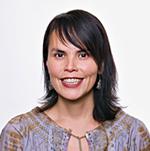
MPLAN Indigenous Recognition of Prior Learning Webinar
MPLAN presented an online webinar via Zoom on Wednesday, May 19, 2021 from 9:30 a.m. – 12:00 p.m.
The Calls to Action of the Truth and Reconciliation Commission, and the United Nations Declaration on the Rights of Indigenous People, both highlight the need for Indigenous and non-Indigenous people in Canada and around the world to work toward a right relationship.
The legacy of colonization continues in many of the institutions and contexts of Canadian life, and Indigenous and non-Indigenous people together are reflecting on what it means to “Indigenize” those spaces and activities and foundational principles. Canadian society is striving for better inclusion of and opportunity for Indigenous people. At the same time, Canadian society can benefit from access to the Indigenous learning and knowledge that sustained nations on Turtle Island for thousands of years before European contact.
MPLAN is proud to present a workshop in which we explore ways that prior learning assessment can help Indigenous people in personal development and recognition toward education and employment goals, and help educational institutions, workplaces, and other organizations to value and integrate Indigenous learning and knowledge.
Main Presentation
“The Necessity of Creating an International Indigenous Recognition of Prior Learning (RPL) Practitioner Manual.”
The presentation will provide a background to why the manual was developed and address the importance of Indigenous RPL processes to Indigenous learners. An overview of the five modules will include a focus on Indigenous RPL models developed by Indigenous peoples in Chile, Nunavut, South Africa, Coast Salish territory, and Mohawk Territory.

Karihwakeron Tim Thompson, Chair of the International Indigenous Recognition of Prior Learning Collective. Karihwakeron Tim Thompson comes from a bear clan family in Wáhta Mohawk Territory. He has worked for a number of Indigenous organizations, including serving at the President and CAO of First Nations Technical Institute, the Director of Education and the Director of Languages for the Assembly of First Nations, and the Policy Director for the Ontario Federation of Indigenous Friendship Centres. Karihwakeron currently volunteers as the Chair of the International Indigenous Recognition of Prior Learning Collective, is a board member of RotaryHIP (Rotary – Honouring Indigenous Peoples), and serves as the Chair of the Wahta Mohawk Community Trust in his home community.
Additional Presentations
Carol Paul, Executive Director at the Manitoba Construction Sector Council (MCSC). The Manitoba Construction Sector Council is a liaison between government, industry and education addressing the needs of Indigenous people across the province of Manitoba. Indigenous PLAR is about recognizing Indigenous knowledge, preparing community members for employment on local construction projects and advancing existing workers to manage projects and mentor others. This session will examine the challenges, the successes and the future direction of Indigenous learning in remote communities.
Lorena Fontaine, Cree-Anishnaabe and a member of the Sagkeeng First Nation in Manitoba, Canada. She is the Indigenous Academic Lead, co-director the Indigenous Languages program and an Associate Professor in Human Rights at the University of Winnipeg. Her research includes linguicide, the legacy of the residential schools and Indigenous language rights in Canada.
Shelley Tulloch, a Professor of Anthropology and Linguistics at the University of Winnipeg. She holds a PhD in Linguistics from Université Laval. Her research focusses on the preservation and promotion of Indigenous languages. For the past twenty years, she has partnered with Inuit communities, organizations, and governments on Inuit-driven projects related to language standardization, community-based language and literacy programming, youth leadership, Inuktitut second language learning, and bilingual Inuit education. She is co-coordinator of University of Winnipeg’s new thematic major in Indigenous languages.
Lorena and Shelley will present on two new Indigenous Languages programs at the University of Winnipeg: 1) a pilot program for Teaching Indigenous Languages to adult learners and, 2) a Thematic Major in Indigenous Languages. As part of the development of these programs PLAR is being explored.
Rennais Gayle, is currently the Academic Chair for Business Programs at Assiniboine Community College. Prior to her arrival to the institution in 2019, Rennais was an Instructor for nine years at Bow Valley College in the School of Global Access. She has also worked as the Director of Journey Capably Education Solutions on curriculum and evaluation projects with the University of Manitoba, Mount Royal University, Alberta Labour, The Immigrant Educational Society, and other organizations.
See full bios below.
Schedule
DATE: Wednesday, May 19, 2021
TIME: 9:30 a.m. to 12:00 p.m.
Wednesday, May 19, 2021
9:20 – 9:30 Enter Zoom meeting, check settings and network with others.
9:30 – 9:35 Colin Russell – MPLAN Welcome and Introductions
9:35 – 10:15 Main Presenter – Karihwakeron Tim Thompson
10:15 – 10:40 Carol Paul
10:40 – 11:10 Lorena Fontaine and Shelley Tulloch
11:10 – 11:30 Rennais Gayle
11:30 – 11:50 Questions and Answers
11:50 – 12:00 Wrap up with Colin
Session Presenters’ Bios

Karihwakeron Tim Thompson comes from a bear clan family in Wáhta Mohawk Territory. He has worked for a number of Indigenous organizations, including serving at the President and CAO of First Nations Technical Institute, the Director of Education and the Director of Languages for the Assembly of First Nations, and the Policy Director for the Ontario Federation of Indigenous Friendship Centres. Karihwakeron currently volunteers as the Chair of the International Indigenous Recognition of Prior Learning Collective, is a board member of RotaryHIP (Rotary – Honouring Indigenous Peoples), and serves as the Chair of the Wahta Mohawk Community Trust in his home community.

Carol Paul is the Executive Director at the Manitoba Construction Sector Council (MCSC). She holds a Bachelor Degree and a Master of Adult Education/Administration Foundation from the University of Manitoba; Carol is a Certified Essential Skills Profiler through Bow Valley College. Carol facilitated English Literature, Alternative Education, Facilitating Adult Learning and Program Planning in the Faculty of Education and Continuing Education Divisions at the University of Manitoba and University of Winnipeg for 15 years. Carol was Managing Director at the Centre for Education and Work for 11 years where she managed national research, education and digital technology projects. She is a founding member of Urban Circle Training Centre, a holistic Indigenous Training Centre in Winnipeg, where she managed the adult learning centre for 14 years. Carol was the Chair of the Manitoba Prior Learning Assessment Network from 2004-2009.
At MCSC, Carol is the Executive Director responsible for writing proposals, managing projects and coordination of the sector council’s activities. She collaborates with industry, government, post-secondary institutions, Indigenous communities and newcomer supporting agencies to develop and deliver college accredited courses using the latest immersive technology. Carol is passionate about forming strong partnerships to address skill/training gaps in Manitoba’s construction sector.
The Manitoba Construction Sector Council is a liaison between government, industry and education addressing the needs of Indigenous people across the province of Manitoba. Indigenous PLAR is about recognizing Indigenous knowledge, preparing community members for employment on local construction projects and advancing existing workers to manage projects and mentor others. This session will examine the challenges, the successes and the future direction of Indigenous learning in remote communities.

Lorena Sekwan Fontaine is Cree-Anishnaabe and a member of the Sagkeeng First Nation in Manitoba, Canada. She is the Indigenous Academic Lead, co-director the Indigenous Languages program and an Associate Professor in Human Rights at the University of Winnipeg. Her research includes linguicide, the legacy of the residential schools and Indigenous language rights in Canada.
Dr. Fontaine has taught for the First Nations University of Canada and the School of Public Policy Graduate Program at Queens University. She has spoken nationally and internationally and has authored articles on residential school issues and Indigenous language rights in Canada. Her PhD research was presented in a CBC documentary entitled “Undoing Linguicide.” Her book “Finding Constitutional Space for Aboriginal Language Rights to Education” will be released by McGill-Queens University Press in the spring 2022.
Since 2003, Dr. Fontaine has been an advocate for Indigenous Residential School Survivors as well as their descendants. She was a task force member and contributor to the Assembly of First Nation’s Report on Canada’s Dispute Resolution Plan to compensate for abuses in Indian Residential Schools. Dr. Fontaine also acted as a legal consultant to the Toronto law firm Thomson, Rogers in a National Class Action on Indigenous Residential schools. She has also worked with the Assembly of First Nations as an advisor on Indigenous languages and linguistic rights.
Shelley Tulloch, a Professor of Anthropology and Linguistics at the University of Winnipeg. She holds a PhD in Linguistics from Université Laval. Her research focusses on the preservation and promotion of Indigenous languages. For the past twenty years, she has partnered with Inuit communities, organizations, and governments on Inuit-driven projects related to language standardization, community-based language and literacy programming, youth leadership, Inuktitut second language learning, and bilingual Inuit education. She is co-coordinator of University of Winnipeg’s new thematic major in Indigenous languages.
Rennais Gayle is currently the Academic Chair for Business Programs at Assiniboine Community College. Prior to her arrival to the institution in 2019, Rennais was an Instructor for nine years at Bow Valley College in the School of Global Access. She has also worked as the Director of Journey Capably Education Solutions on curriculum and evaluation projects with the University of Manitoba, Mount Royal University, Alberta Labour, The Immigrant Educational Society, and other organizations.
She has held Coordinator roles in secondary education and the Settlement and Integration sector and has worked as a Site Administrator on the Racism, Violence, and Health Project at the University of Calgary. Rennais holds a M.Ed., BA, and B.Ed. from the University of Calgary, and a certificate in Curriculum Development and Instructional Design from Mount Royal University.
She is currently pursuing her Doctorate in Educational Leadership at Western University. Rennais is an avid volunteer. Some of her previous volunteer roles include Working Group Member with the Canadian Association of Prior Learning and Assessment, Alberta Restorative Justice Grant Reviewer, and a Member of the IRCC National Taskforce on Technology and Professional Development.